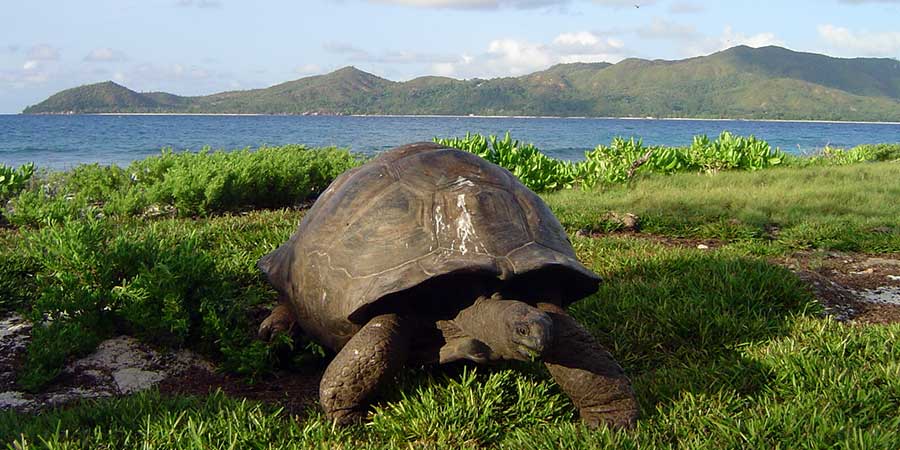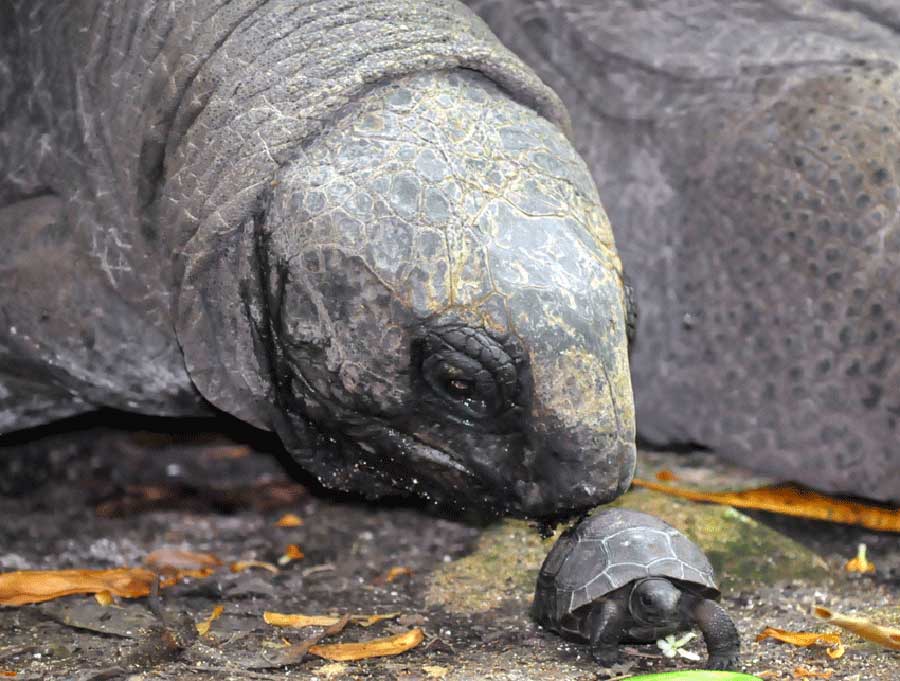
Cousin is a tiny island in the middle of the Indian Ocean. The magnificence of this small shred of paradise leaves me breathless. The natural environment here seems almost untouched due to the hard and consistent conservation work by Nature Seychelles. To be part of this conservation project means a lot to me. As a biology student, fieldwork and experience is very important to widen my knowledge. Now after just one week on Cousin Island Special Reserve, I have already experienced some incredible moments.
The giant Aldabra tortoises roam freely on the island and can usually be found wandering near the research house, content to be living on this protected island. These slow but smart creatures are very impressive, especially when you think about how old they can get – up to 150 years, due to their very slow metabolism.

When enjoying the beautiful sunset on top of the granite rocks, the shearwaters break the silence of the night with a concert of howling. It’s no wonder that a long time ago settlers believed there were ghosts on the island. There are also some fantastic snorkeling spots around the island. A variety of tropic fishes, rays and reef sharks are a regular sighting. From the beach you can see sea turtle heads popping up as they emerge for air, or dolphins surfacing in the horizon.
However, the once in a lifetime experience for me was to see a brown noddy chick hatching right in front of my eyes. To see the beginning and growth of new life is just mind-blowing. Living on Cousin, it is easy to see how everything is connected and balanced in the ecosystem.
Unfortunately human impact is disturbing this balance. In many places around the world, marine trash like plastic bags cause the death of turtles, sea birds and many other species. Industrial fisheries literally empty the oceans, and sea birds are having a hard time finding food. Sharks usually chase the fish towards the surface, allowing sea birds to easily catch fish. However there are only a few left and exploitation is still going on.

The increase in temperature and sea level due to climate change is a major threat to the survival of many species. For instance, the rise in temperature may have negative affects on the gender ratio of sea turtles. The human impact is an extensive factor, which is why conservation work, such as what is being done on and around Cousin, is of such importance, if future generations are to have any chance to benefit from the use of the earth’s natural resources.
Volunteering for Nature Seychelles on Cousin has been very rewarding. It has made me want to continue working in conservation. The experience in fieldwork was a big goal of mine, but living and working on Cousin has been so much more than that. Definitely an unforgettable experience.
Sabrina Glufke

